Customer Services
Copyright © 2025 Desertcart Holdings Limited


desertcart.com: The Idiot (Penguin Classics): 9780140447927: Dostoyevsky, Fyodor, McDuff, David, McDuff, David, Mills Todd, William: Books Review: beauty will save the world - I was on the NR train with a college junior who was a former Bible study student of mine in high school. We were on our way to the Carnegie Deli when I asked how his fellow classmates were doing. It was then that he told me the news. "Didn't you hear?" he said. "--- was recently in a porn video." When I heard this, I said that it was like hearing that a young child I knew had been molested. He responded incredulously, "When I heard about it, I laughed." I might have laughed as well. The way one laughs in disbelief upon hearing about some foolish or crude act, I might have said, "Oh my gosh!" or "Are you serious?" all the while itching to hear more of the titillating details. Afterwards I would have offered some hint of condescending sympathy while condemning her on how she could have been so stupid. In the end I would have felt a certain pleasure as one often does upon hearing salacious gossip. But when I heard the news, my heart immediately sank and I wanted nothing more than to tell her that she was a good person, that God loved her and sent His Son to die for her, and looked at her as His precious adopted daughter. At that moment I wanted to tell her with heartfelt honesty that I always thought of her as being one of the most tender hearted people I knew, a person who wanted to know God so personally and with such childlike sincerity. I wanted her to forget momentarily her reputation - deserved and undeserved - and I wanted to remind her of being the girl who memorized and recited to me the first chapter of James, of being one of a handful in the class who always participated in our community outreaches, of being the girl who would lift up her hands with eyes closed during praise time when no one else would. I wanted her to believe all these things, but even still, I hoped against hope and felt and still feel a deep desperation. If you have not read Fyodor Dostoevsky's The Idiot, you will not understand that desperation or why I was hoping against hope. What follows is a brief attempt to show how The Idiot changed my heart from one that once snickered to one that now sighs in despair. The novel is basically about a beautiful woman who was seduced in her youth by a rich man who promised to marry her, and another man's efforts to save this woman who continually suffers from her betrayal and the social stigma of being tainted. Prince Myshkin, the would-be savior of Nastasya Filippovna, is a young man who has recently inherited a large sum of money and returns to his homeland after recovering from severe epilepsy that continues to recur on and off. The Prince is often viewed as an idiot by others chiefly because he appears to be very naive to the ways of the world. Many characters abusively take advantage of his generous, meek and forgiving nature. Parfyon Rogozin, a rogue in lust for Nastasya, for example, repeatedly strikes and even attempts to kill the Prince who only responds sympathetically with tears, "You will regret what you've done!" In another example, Agalya, a beautiful young aristocrat in love with the Prince and whom the Prince romantically loves in return, often cruelly humiliates him in public to test and measure how forgiving and patient and unconditional his love for others, and for her, really could be. Then there are those who would ask for loans, which the Prince gives to them freely amidst the criticism of Agalya's mother and her friends who deprecate him as incorrigibly gullible. The Prince however is no fool. In one particularly memorable scene at a dinner party in the home of Agalya's mother, the Prince gives the most penetrating and damning fulmination of Roman Catholicism ever written (Chapter 7 of Part 4). Also, his dealings with the young, dying existentialist Ippolit show remarkable insight and restraint. To be sure almost everyone around him comes to admire and grow fond of the Prince. But it is not primarily the Prince's wisdom or kindness that makes him, along with Cervantes' Don Quixote, one of the most endearing and inspiring characters in history. It is the Prince's decision to commit to loving the broken, bitter, and vengeful Nastasya over his sweetheart Agalya that sears him into the conscience. Although Agalya inflicts much suffering on the Prince throughout the novel, she finally comes to reconcile the fact that the Prince's love is real and submits herself to his entreaties. They would have made the ideal couple - she from an upstanding family with a wealthy dowry, he from a noble lineage - they would have enjoyed the envy of everyone around them. But the Prince in the end cannot ignore the pain of Nastasya who suffers constantly from the disdainful glances and whispers of the elite, the lustful grabs by rogues, and most of all from her own perception of herself as tawdry and without hope. The Prince ends up pursuing Nastasya and offers his hand in marriage to her. What happens next explains why I said at the beginning of this review that you would not understand why I had hoped against hope that the former student would come to believe all that I wanted her to know unless you had read this novel. At the wedding ceremony, Nastasya walks down the aisle as everyone gasps at her sheer beauty, but upon seeing the Prince, she runs away to a carriage driven by Rogozin. Some would conclude that Nastasya's problem was that ultimately she had failed to forgive herself, and as a result, could not let the past go to live happily with the Prince. But this is not a complete analysis. Nastasya's problem was at root unbelief. She failed to believe in the love of the Prince and its power to overlook her past. Others may suppose that it was humility driving this unbelief that forced her to flee from the Prince. That Nastasya thought that she was only worthy of a lecherous life with Rogozin. But far from showing humility, this thought demonstrates the greatest pride. She refused to believe that the Prince was a more qualified judge of her than herself. Only pride could support such a view. The parallel to my former student and our Lord is too obvious and need not be expressly stated here. I would only add that when I said that I still feel desperation that the former student would come to believe all that I wanted her to know, what I had in mind was what happened to the Prince after Nastasya left him at the alter for Rogozin. That is, the Prince continued to pursue her, and . . . well, the ending of the novel, I leave for you to discover on your own as an incentive for you to read this book in its entirety. I know most scholars and critics view Dostoevsky's Brothers Karamazov as the greatest novel ever written, but surely there has never been a character as sublime as Prince Myshkin through whom we can all understand the meaning of grace deeper than we had ever dared to know before. Review: The Brothers Myshkin and Raskolnikov - Written immediately after CRIME AND PUNISHMENT, Dostoevsky gives us THE IDIOT, whose hero, Prince Myshkin, is gentle and Christ-like - the polar opposite of Raskolnikov, the nihilist murderer. Taken together, the two novels give us a fascinating critique of Russian (and Western) society from the perspective of a sinner and a saint, and of a society that has produced both. Admittedly, THE IDIOT must be seen a minor novel in comparison to CRIME AND PUNISHMENT. It lacks its psychological power and narrative drive. But I would suggest that the greatness of CRIME AND PUNISHMENT is enhanced by reading THE IDIOT. Further, I would argue that much of what is seen to be the greatness of CRIME AND PUNISHMENT originates in the location of the narrator's point of view inside the teeming and tortured mind of the ultimate outsider, Raskolnikov. The third person narrator inside a single consciousness became the "default" practice in the late 19th and early 20th century. This is perhaps why the story of Prince Myskin, our gentle insurgent in THE IDOT who is nearly always seen inside of a Russian society, and whose story is told in a mix of omniscient narrator and from Myshkin's point of view is seen to be old-fashioned or hard to read. I would argue that given the nature of the story Dostoyevsky is telling here - of a society that cannot cope with an honest and compassionate man that the omniscient narrator's voice is warranted and appropriate (unlike a number of reviewers below for whom this technique comes off as creaky and plodding). To tell the story he wants to tell, Dostoyevsky must move from one drawing room to another, one set of eyewitnesses, gossips, and minor characters to another. These set pieces - such as Natasya's "party" where she chooses whom she will marry, or the nihilist Ipollit's reading of his Confession, also locate THE IDIOT more in the realm of traditional 19th century novel of manners than CRIME AND PUNISHMENT. And its ostensible subject matter - marriage - places it squarely in the genre. I find it sad that the set pieces in THE IDIOT can seem interminable to some modern readers. Yes, characters do hold forth for pages and pages, propounding theories, relating anecdotes in excruciating detail. In the society of the 19th century, even in the chaotic society of post-feudal Russia where the social order was in flux, the conversational customs of a court society still held sway. Even in the considerably more democratic United States, the presence of Oliver Wendell Holmes, Sr. at social functions was highly prized by elites because he was universally recognized for his acumen as a speaker and conversationalist. These days we don't talk anywhere near as intelligently, as passionately or grandly these marvelous characters, and our suburbanized circumstances reduce our chances for unsettling social encounters as well. Which do you more often attend - parties featuring a stew of anarchic social criticism, bizarre personal attacks and grotesque dissembling, or a dull pudding of sitcom japes and bumpersticker politics? Which would you prefer? Dostoyevsky fills his drawing rooms with challenges to the status quo, with intemperate invective, with radical claims on the political and economic system. At the same time he gives voice to conservative views, e.g., that Russia was better before Alexander II freed the serfs (in 1861, only 6 years prior to the publication of THE IDIOT), better before the aristocracy began to rub shoulders with powerful merchants and usurers, better before the atheists, nihilists and anarchists attacked the church and the social structure. Interestingly, many of these contretemps are, as in so much 19th Century fiction, posed in connection with "the woman question." Our heroine, Natasya, raised by her guardian and seduced at a young age. is intent upon exposing Russian society for its hypocritical attitudes and brutal behavior toward women. Brilliant and beautiful, Natasya concoct a series of circumstances that both outrage and shame conventional society. She is the demonic critic of Russian society, her vindictive spirit contrasting sharply with Prince Myshkin's penchant for compassion and forgiveness. Together they form a unique double-edged critique of the bourgeoisie. And both are broken by their society's cruel intolerance and vast hypocrisy. Prince Myshkin's conversation marks him among members of his society an "idiot" because he speaks forthrightly and answers truthfully without regard for the consequences. So disturbing is this behavior that Aglaya, the woman he hopes to marry, tells him not speak at the gathering at which he is being introduced to high society as a suitor. But driven by the onset of an epileptic fit, he disobeys and gives himself up to a remarkable speech in which his praise for the assembled company, his views on politics and religion are interpreted by most as an insult, and by many as the ravings of a madman. His speech is a form of social suicide, self-murder, and as such the flip side of Raskolnikov's homicide. In the largest sense, what's at stake in these conversations and disputes is no less than the soul of Russia. Through the prince's speech Dostoyevsky poses the question as to whether Russia will reawaken to her deep and unique Christian heritage and behave, like the prince, with virtue, compassion and honor, or become like the empires to the West whose money-grubbing ways have begun to infect Russia and her people. THE IDIOT has flaws. There is too much disquisition and exposition even for a 19th century novel. Sometimes, Dostoyevsky will vamp along for a few pages, trying to figure out what to do next. But still, THE IDIOT is well worth reading by itself, or even better, in combination with CRIME AND PUNISHMENT for its psychological acuity and its devastating dissection of a unique social world under stress.


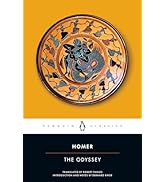

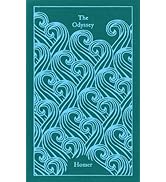




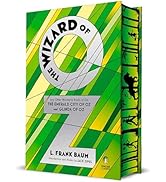
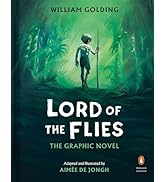

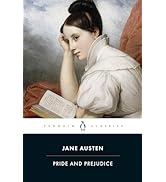
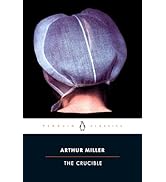
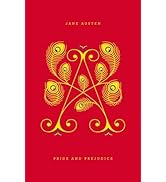


| Best Sellers Rank | #8,271 in Books ( See Top 100 in Books ) #90 in Contemporary Literature & Fiction #223 in Classic Literature & Fiction #569 in Literary Fiction (Books) |
| Customer Reviews | 4.5 4.5 out of 5 stars (3,391) |
| Dimensions | 5.05 x 1.35 x 7.75 inches |
| Edition | New Ed |
| ISBN-10 | 014044792X |
| ISBN-13 | 978-0140447927 |
| Item Weight | 1.16 pounds |
| Language | English |
| Print length | 784 pages |
| Publication date | August 31, 2004 |
| Publisher | Penguin Classics |
P**N
beauty will save the world
I was on the NR train with a college junior who was a former Bible study student of mine in high school. We were on our way to the Carnegie Deli when I asked how his fellow classmates were doing. It was then that he told me the news. "Didn't you hear?" he said. "--- was recently in a porn video." When I heard this, I said that it was like hearing that a young child I knew had been molested. He responded incredulously, "When I heard about it, I laughed." I might have laughed as well. The way one laughs in disbelief upon hearing about some foolish or crude act, I might have said, "Oh my gosh!" or "Are you serious?" all the while itching to hear more of the titillating details. Afterwards I would have offered some hint of condescending sympathy while condemning her on how she could have been so stupid. In the end I would have felt a certain pleasure as one often does upon hearing salacious gossip. But when I heard the news, my heart immediately sank and I wanted nothing more than to tell her that she was a good person, that God loved her and sent His Son to die for her, and looked at her as His precious adopted daughter. At that moment I wanted to tell her with heartfelt honesty that I always thought of her as being one of the most tender hearted people I knew, a person who wanted to know God so personally and with such childlike sincerity. I wanted her to forget momentarily her reputation - deserved and undeserved - and I wanted to remind her of being the girl who memorized and recited to me the first chapter of James, of being one of a handful in the class who always participated in our community outreaches, of being the girl who would lift up her hands with eyes closed during praise time when no one else would. I wanted her to believe all these things, but even still, I hoped against hope and felt and still feel a deep desperation. If you have not read Fyodor Dostoevsky's The Idiot, you will not understand that desperation or why I was hoping against hope. What follows is a brief attempt to show how The Idiot changed my heart from one that once snickered to one that now sighs in despair. The novel is basically about a beautiful woman who was seduced in her youth by a rich man who promised to marry her, and another man's efforts to save this woman who continually suffers from her betrayal and the social stigma of being tainted. Prince Myshkin, the would-be savior of Nastasya Filippovna, is a young man who has recently inherited a large sum of money and returns to his homeland after recovering from severe epilepsy that continues to recur on and off. The Prince is often viewed as an idiot by others chiefly because he appears to be very naive to the ways of the world. Many characters abusively take advantage of his generous, meek and forgiving nature. Parfyon Rogozin, a rogue in lust for Nastasya, for example, repeatedly strikes and even attempts to kill the Prince who only responds sympathetically with tears, "You will regret what you've done!" In another example, Agalya, a beautiful young aristocrat in love with the Prince and whom the Prince romantically loves in return, often cruelly humiliates him in public to test and measure how forgiving and patient and unconditional his love for others, and for her, really could be. Then there are those who would ask for loans, which the Prince gives to them freely amidst the criticism of Agalya's mother and her friends who deprecate him as incorrigibly gullible. The Prince however is no fool. In one particularly memorable scene at a dinner party in the home of Agalya's mother, the Prince gives the most penetrating and damning fulmination of Roman Catholicism ever written (Chapter 7 of Part 4). Also, his dealings with the young, dying existentialist Ippolit show remarkable insight and restraint. To be sure almost everyone around him comes to admire and grow fond of the Prince. But it is not primarily the Prince's wisdom or kindness that makes him, along with Cervantes' Don Quixote, one of the most endearing and inspiring characters in history. It is the Prince's decision to commit to loving the broken, bitter, and vengeful Nastasya over his sweetheart Agalya that sears him into the conscience. Although Agalya inflicts much suffering on the Prince throughout the novel, she finally comes to reconcile the fact that the Prince's love is real and submits herself to his entreaties. They would have made the ideal couple - she from an upstanding family with a wealthy dowry, he from a noble lineage - they would have enjoyed the envy of everyone around them. But the Prince in the end cannot ignore the pain of Nastasya who suffers constantly from the disdainful glances and whispers of the elite, the lustful grabs by rogues, and most of all from her own perception of herself as tawdry and without hope. The Prince ends up pursuing Nastasya and offers his hand in marriage to her. What happens next explains why I said at the beginning of this review that you would not understand why I had hoped against hope that the former student would come to believe all that I wanted her to know unless you had read this novel. At the wedding ceremony, Nastasya walks down the aisle as everyone gasps at her sheer beauty, but upon seeing the Prince, she runs away to a carriage driven by Rogozin. Some would conclude that Nastasya's problem was that ultimately she had failed to forgive herself, and as a result, could not let the past go to live happily with the Prince. But this is not a complete analysis. Nastasya's problem was at root unbelief. She failed to believe in the love of the Prince and its power to overlook her past. Others may suppose that it was humility driving this unbelief that forced her to flee from the Prince. That Nastasya thought that she was only worthy of a lecherous life with Rogozin. But far from showing humility, this thought demonstrates the greatest pride. She refused to believe that the Prince was a more qualified judge of her than herself. Only pride could support such a view. The parallel to my former student and our Lord is too obvious and need not be expressly stated here. I would only add that when I said that I still feel desperation that the former student would come to believe all that I wanted her to know, what I had in mind was what happened to the Prince after Nastasya left him at the alter for Rogozin. That is, the Prince continued to pursue her, and . . . well, the ending of the novel, I leave for you to discover on your own as an incentive for you to read this book in its entirety. I know most scholars and critics view Dostoevsky's Brothers Karamazov as the greatest novel ever written, but surely there has never been a character as sublime as Prince Myshkin through whom we can all understand the meaning of grace deeper than we had ever dared to know before.
P**S
The Brothers Myshkin and Raskolnikov
Written immediately after CRIME AND PUNISHMENT, Dostoevsky gives us THE IDIOT, whose hero, Prince Myshkin, is gentle and Christ-like - the polar opposite of Raskolnikov, the nihilist murderer. Taken together, the two novels give us a fascinating critique of Russian (and Western) society from the perspective of a sinner and a saint, and of a society that has produced both. Admittedly, THE IDIOT must be seen a minor novel in comparison to CRIME AND PUNISHMENT. It lacks its psychological power and narrative drive. But I would suggest that the greatness of CRIME AND PUNISHMENT is enhanced by reading THE IDIOT. Further, I would argue that much of what is seen to be the greatness of CRIME AND PUNISHMENT originates in the location of the narrator's point of view inside the teeming and tortured mind of the ultimate outsider, Raskolnikov. The third person narrator inside a single consciousness became the "default" practice in the late 19th and early 20th century. This is perhaps why the story of Prince Myskin, our gentle insurgent in THE IDOT who is nearly always seen inside of a Russian society, and whose story is told in a mix of omniscient narrator and from Myshkin's point of view is seen to be old-fashioned or hard to read. I would argue that given the nature of the story Dostoyevsky is telling here - of a society that cannot cope with an honest and compassionate man that the omniscient narrator's voice is warranted and appropriate (unlike a number of reviewers below for whom this technique comes off as creaky and plodding). To tell the story he wants to tell, Dostoyevsky must move from one drawing room to another, one set of eyewitnesses, gossips, and minor characters to another. These set pieces - such as Natasya's "party" where she chooses whom she will marry, or the nihilist Ipollit's reading of his Confession, also locate THE IDIOT more in the realm of traditional 19th century novel of manners than CRIME AND PUNISHMENT. And its ostensible subject matter - marriage - places it squarely in the genre. I find it sad that the set pieces in THE IDIOT can seem interminable to some modern readers. Yes, characters do hold forth for pages and pages, propounding theories, relating anecdotes in excruciating detail. In the society of the 19th century, even in the chaotic society of post-feudal Russia where the social order was in flux, the conversational customs of a court society still held sway. Even in the considerably more democratic United States, the presence of Oliver Wendell Holmes, Sr. at social functions was highly prized by elites because he was universally recognized for his acumen as a speaker and conversationalist. These days we don't talk anywhere near as intelligently, as passionately or grandly these marvelous characters, and our suburbanized circumstances reduce our chances for unsettling social encounters as well. Which do you more often attend - parties featuring a stew of anarchic social criticism, bizarre personal attacks and grotesque dissembling, or a dull pudding of sitcom japes and bumpersticker politics? Which would you prefer? Dostoyevsky fills his drawing rooms with challenges to the status quo, with intemperate invective, with radical claims on the political and economic system. At the same time he gives voice to conservative views, e.g., that Russia was better before Alexander II freed the serfs (in 1861, only 6 years prior to the publication of THE IDIOT), better before the aristocracy began to rub shoulders with powerful merchants and usurers, better before the atheists, nihilists and anarchists attacked the church and the social structure. Interestingly, many of these contretemps are, as in so much 19th Century fiction, posed in connection with "the woman question." Our heroine, Natasya, raised by her guardian and seduced at a young age. is intent upon exposing Russian society for its hypocritical attitudes and brutal behavior toward women. Brilliant and beautiful, Natasya concoct a series of circumstances that both outrage and shame conventional society. She is the demonic critic of Russian society, her vindictive spirit contrasting sharply with Prince Myshkin's penchant for compassion and forgiveness. Together they form a unique double-edged critique of the bourgeoisie. And both are broken by their society's cruel intolerance and vast hypocrisy. Prince Myshkin's conversation marks him among members of his society an "idiot" because he speaks forthrightly and answers truthfully without regard for the consequences. So disturbing is this behavior that Aglaya, the woman he hopes to marry, tells him not speak at the gathering at which he is being introduced to high society as a suitor. But driven by the onset of an epileptic fit, he disobeys and gives himself up to a remarkable speech in which his praise for the assembled company, his views on politics and religion are interpreted by most as an insult, and by many as the ravings of a madman. His speech is a form of social suicide, self-murder, and as such the flip side of Raskolnikov's homicide. In the largest sense, what's at stake in these conversations and disputes is no less than the soul of Russia. Through the prince's speech Dostoyevsky poses the question as to whether Russia will reawaken to her deep and unique Christian heritage and behave, like the prince, with virtue, compassion and honor, or become like the empires to the West whose money-grubbing ways have begun to infect Russia and her people. THE IDIOT has flaws. There is too much disquisition and exposition even for a 19th century novel. Sometimes, Dostoyevsky will vamp along for a few pages, trying to figure out what to do next. But still, THE IDIOT is well worth reading by itself, or even better, in combination with CRIME AND PUNISHMENT for its psychological acuity and its devastating dissection of a unique social world under stress.
K**N
Good, but as always damaged dust jackets.
Great book, but every man’s library books always come with damaged dust jackets and weird markings on them.
S**N
I loved the book. But for anyone who buys this edition, I hope you have good reading glasses. I believe the font must be size 2. So tiny!
K**A
I cannot comment on the content of this book because I have still not read it.The quality of pages are fine according to price.If you want supreme page quality go for deluxe or premium version.
C**A
Exactly as expected.
A**!
Another good paperback to add to mu collection! The author has been on my reading list for quite a while so looking forward to reading this!
M**S
After checking on internet, the Viking translation is said to be the best, hands down. As someone interested in literature but not necessarily Dostoevsky, my personal reaction is as follows: The book is easy to read but extremely long (over 600 pages). The narrative structure is quite interesting in that at the beginning of the 4 books, the narrator stops and comments on the characters and their actions between chapters, addressing the narratee directly, and using the pronoun "we". Otherwise he lets the characters interact and speak with each other. It should be easy to make this book into a play (if shortened) given the considerable amount of dialogue. Personally I find the characters, more caricature than character, all a bit extreme in their (re)actions and Myushkin unbearable by the end. But this is said to be Dostoevsky's view of the Russian people and Russian society, and Myushkin is a Christ-figure. What I find most interesting is various characters' comments on Russian society and its people at a time leading up to great change as Dostoevsky sees it. Also it is interesting to note how often the characters are said to "laugh" or "guffaw" or "smile" or "(almost) burst into laughter" ... It would seem that there is an interesting lit-crit article to be written (if it hasn't already been done) on "Laughter in 'The Idiot'"
Trustpilot
3 weeks ago
1 month ago